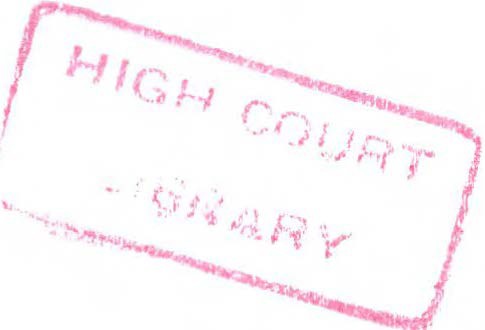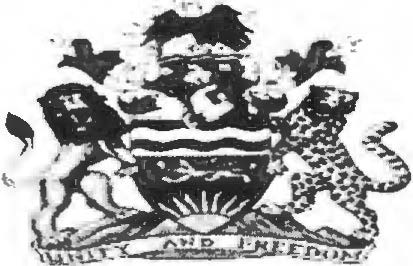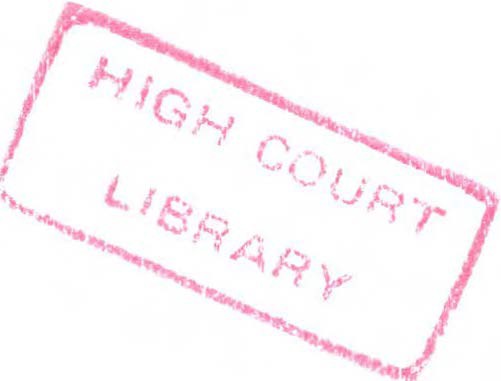Mulli Brothers Limited v. FDH Bank Limited Kenyatta Nyirenda, J.


 JUDICIARY
JUDICIARY
IN THE HIGH COURT OF MALAWI
PRINCIPAL REGISTRY
CIVIL CAUSE NO. 53 OF 2017
BETWEEN
MULLI BROTHERS LIMITED ................................................ PLAINTIFF
-AND-
FDH BANK LIMITED ............................................................ DEFENDANT
CORAM: THE HONOURABLE JUSTICE KENYATTA NYIRENDA
Mr. C. Gondwe, of Counsel, for the Plaintiff Mr. Kita, of Counsel, for the Defendant
Mr. 0. Chitatu, Court Clerk

ORDER
Kenyatta Nyirenda, J.
This is an application by the Defendant for a transfer of this case from this Division to the Commercial Division.
The background to the application is of the simplest. On 8th February 2017, the Plaintiff commenced an action by originating summons whereby it seeks the following orders and declarations:
"(a) whether the arrears on the unserviced accounts secured by a charge Title No. Blantyre East 163, amalgamated with loan Accounts which were duly settled by the Government as toxic loans secured through various mortgages resulted into prejudicial interest charges rendering the whole lending transaction harsh and unconscionable as envisaged by section 3 of the Loans Recovery Act (Cap 6:04 of the Laws of Malawi).
(b) Whether the lending transaction be re-opened considering the Defendant Bank's consolidation of the loan Account and toxic loans that were already settled
implies that the Plaintiff incurred more interest charges and expenses and the same need to be thoroughly reckoned and credited to the Plaintiff.
(c) Whether the charge over Title No. Blantyre East I63 the liability in respect of which was wrongly amalgamated with duly settled toxic loans was void and therefore incapable of enforcement by way of sale by the Defendant Bank.
(d) Whether the Defendant Bank has complied with section 68 of the Registered Land Act by giving a 7 days Notice instead of the 90 day period.
(e) Whether a permanent order of injunction be granted herein restraining the Defendant Bank from selling the Plaintiff's property being Title No. Blantyre East 163."
On the same day, the Plaintiff filed an Ex-parte Summons for an Order of Interim Injunction restraining the Defendant from advertising for sale and/or selling the collateral security being Title No. Blantyre East 163 or interfering with the Plaintiffs peaceful enjoyment of the same up until the hearing or determination of the matter or till a further order of the court. The interlocutory injunction was granted subject to the Plaintiff filing an inte-partes summons within 7 days from 8th February 2017.
On 24th February 2017, the Defendant filed with the Court its application for the transfer of the case to the Commercial Division. The application for transfer is said to be brought under section 7D of the Courts Act as read with section 6A (2) of the Courts (Amendment) Act 2016. The application is supported by an affidavit sworn by Wapona Kita, of Couhsel. The Affidavit is brief and the substantive part thereof will be-quoted in full:
"3. THAT the Plaintiff commenced this action in the civil division of the High Court by way of an Originating Summons seeking declarations emanating from his commercial relationship with the Defendant.
4. THAT it is clear from the affidavit in support that the plaintiff's action is based on the decision by the Defendant to put on sale Title No: Blantyre East I 63 which was pledged as security for the repayment of the loan of K90, 000, 000.00 that the Plaintiff had obtained from the Defendant's bank.
5. THAT by the reason of the matters aforesaid, this is matter that ought to be handled in the commercial court division and there is no basis that it should be continued in this Court.
6. THAT it is against this background that the Defendant prays to the Court to transfer this action to the Commercial Division of the High Court.
7. THAT since the Plaintiff's legal practitioners ought to have known that this is a matter that ought to have been commenced in the Commercial Division, they should be condemned to pay costs occasioned by this application and filing the action on the Commercial Division as provided under section 6A (2) (3) of the Courts (Amendment) Act of 2016 and more importantly the Court should order that the matter be transferred and filed by the Plaintiff in the Commercial Division within 48 hours from the date of making the order. "
The application for transfer of the case is heavily contested by the Plaintiff and an Affidavit in Opposition, sworn by Chancy Gondwe, of Counsel, was filed to that effect. For purposes of parity of treatment, I will also set out in full substantive part of the Affidavit in Opposition. It reads:
"3. THAT the matter herein was commenced here at the Principal Registry because the Application that accompanied the Originating Summons was an urgent interim relief and that the motion judge of the Commercial Division was not readily available to handle it at the Commercial Division, and as such the relief sought would have delayed thereby occasioning an irreparable damage to the Plaintiff
4. THAT we are very much aware that this matter could have been commenced at the Commercial Division but there were compelling reasons for commencing this matter at this division.
5. THAT despite that this matter could have been commenced in the Commercial Division, the same does not deprive a Judge of this Court jurisdiction .from presiding Over a Commercial matter as long as there have been compelling reasons to do so.
6. THAT this Honourable Court can still hear the matter and make a determination on the reliefs that are being sought herein.
WHEREFORE it is humbly prayed that the Application be dismissed with costs. "
The submissions by Counsel Kita were concise and brief. He adopted his affidavit and invited the Court to note that the Plaintiff concedes in its affidavit in opposition that the claim herein is a commercial matter. Counsel Kita submitted that in light of the concession, there can be no valid reason for not having this matter transferred to the Commercial Division.
Counsel Gondwe adopted the Plaintiffs Skeletal Arguments and the same are reproduced below:
"3. 0 THE LAW
3.1 Commercial Matter
Commercial Matter has been defined by the High Court (Commercial Division) Rules. Order 1 rule 1 5 provides, inter alia, that "Commercial Matter means a civil matter of commercial significance arising out of or connected with any relationship of commercial business in nature, whether contractual or not, including but not limited to-
3.2 It is clear that the plaintiff and the defendant are in a contractual relationship involving business transactions that the claims involved are liabilities from and the matter involved payment of a commercial debt.
3.3. Transfer of proceedings to the Commercial Court.
Commercial matters ought to be brought in the commercial division unless there are compelling or convincing reasons not to do so. Where a commercial matter has been brought in the general division, the matter ought to be transferred to the commercial division of the High Court - Mpungira Trading Limited v International Commercial Bank, Civil Cause Number 493 of 2013.
3.4 The Creation of different divisions in the High Court is not to impeach section 108 of the Constitution but to improve eficiency and service delivery. As a result, such specialization of divisions must be encouraged for expediency and efficiency - Mbale v Maganga Miscellaneous Civil Appeal Cause Number 21 of 2013.
3.5 The above authority shows that the Malawi Supreme Court's position is that commencement of cases in specialized divisions must be encouraged for expediency and efficiency.
3. 6 Further, according to the case of Mpungulira cited above, the appropriate rout of action is not t dismiss the matter but rather to order that it be transferred to the division which has specialized jurisdiction.
4.0 ANALYSIS
4.1 This matter is a Commercial matter within the intended of the High Court (Commercial Division) Rules.
There were compelling reasons for the matter to have been brought in the General Division.
4.2 The matter is likely to be disposed of a quickly in view of the fact that the same has been brought by way of Originating Summons. Further at the time the plaintiff was bringing the action there was an urgent need for an injunction and that the General Division was very convenient at that particular time.
4. 3 It is humbly submitted that this matter can still be disposed of in this Registry. " - Emphasis by underlining supplied
Based on his submissions, I am inclined to think that Counsel Gondwe is not yet aware of the enactment of Act No. 23 of 2016, namely, the Courts (Amendment) Act, 2016 [hereinafter referred to as the "Amendment Act"]. Sections 2 and 3 of the Amendment Act are relevant.
Section 2 of the Amendment Act amends section 2 of the Courts Act by inserting therein the following new definitions:
""civil matter" means a civil matter that is not a commercial, criminal, family or probate matter";
"commercial matter" means a civil matter of commercial significance arising out of or connected with any relationship of commercial or business nature, whether contractual or not, including-
(a) the formation or governance of a business or commercial organization;
(b) the contractual relationship of a business or commercial organization;
(c) liabilities arising from commercial or business transactions;
(d) the restructuring or payment of commercial debts;
(e) the winding up of companies or bankruptcy of persons;
(f) the enforcement or review of commercial arbitration award,·
(g) the enforcement of foreign judgments of commercial matters subject to the provisions of the law;
(h) the supply or exchange of goods and services;
(i) banking, negotiable instruments, international credit and similar financial services;
(j) insurance services,· or
(k) the operation of stock and foreign exchange markets,
in the event of doubt as to whether a matter is commercial or not, the judge at the outset or during the course of the action, shall have power to resolve the issue";
"criminal matter" means a matter requiring a person to answer for an offence under any written law other than revenue law;
"family matter" means a civil matter which concerns the entry, subsistence and exit from a marriage, and incidental matters thereto;
''probate matter" means a civil matter which concerns succession to or inheritance of property and incidental matters;
"revenue matter" means a civil or criminal matter which concerns taxes, duties, fees,
levies, fines or other monies imposed by or collected under the written laws set out under the Malawi Revenue Authority Act. "
Section 3 of the Amendment Act amends the Courts Act by inserting in the Courts Court, immediately after section 6, a new section 6A which establishes, in subsection ( 1 ), five divisions of the High Court as follows:
(a) the Civil Division which shall hear civil matters not provided for under another Division of the High Court;
(b) the Commercial Division which shall hear any commercial matter;
(c) the Criminal Division which shall hear any criminal matter;
(d) the Family and Probate Division which shall hear any family or probate matter; and
(e) the Revenue Division which shall hear any revenue matter.
Section 6A of the Courts Act also contains the following subsections:
"(2) Where a person commences a matter or makes an application in a division other than the appropriate division in accordance with this section, the Registrar shall, on his own volition or on application, immediately transfer the matter to the appropriate division.
(3) Any costs arising from the process under subsection (2) shall be borne by the party who commenced the matter in an inappropriate division. "
I have considered the grounds advanced by the Plaintiff for objecting to the transfer and I find them wanting. Counsel Gondwe concedes that the Plaintiff and the Defendant are in a contractual relationship involving business transactions and payment of a commercial debt: see paragraph 4 of the Affidavit in Opposition and paragraph 3.2 of the Plaintiffs Skeleton Arguments
On the basis of the foregoing, there is no doubt in my mind that what we have here is a civil matter of commercial significance arising out of or connected with a relationship of commercial or business nature. Accordingly, it is my finding that the case herein is a commercial matter.
In terms of section 6A of the Courts Act, it is the Commercial Division, and not this Court (Civil Division), that is charged with hearing commercial matters. In the premises, this matter has to be transferred to the Commercial Division. I, accordingly, direct that the Plaintiff should have this case transferred to Commercial Division within 30 days hereof, failing which the action shall automatically stand dismissed and the interlocutory injunction granted herein will no longer be valid. It is so ordered.
Costs are awarded to the Defendant: see section 6A (3) of the Courts Act which provides that where a case is commenced in a division other than the appropriate division costs arising from the process shall be borne by the party who commenced the case in an inappropriate division.
Pronounced in Court this 19th day of June 2017 at Blantyre in the Republic of Malawi.
________
Kenyatta Nyirenda
JUDGE
1